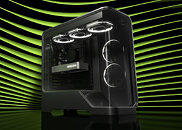The RTX 50-series fever continues to rage on, with independent reviews for the RTX 5080 and RTX 5090 dropping towards the end of this month. That does not stop benchmarks from leaking out, unsurprisingly, and a recent lineup of Geekbench listings have revealed the raw performance uplifts that can be expected from NVIDIA's next generation GeForce flagship. A sizeable chunk of the tech community was certainly rather disappointed with NVIDIA's reliance on AI-powered frame generation for much of the claimed improvements in gaming. Now, it appears we can finally figure out how much raw improvement NVIDIA was able to squeeze out with consumer Blackwell, and the numbers, for the most part, appear decent enough.
Starting off with the OpenCL tests, the highest score that we have seen so far from the RTX 5090 puts it around 367,000 points, which marks an acceptable jump from the RTX 4090, which manages around 317,000 points according to Geekbench's official average data. Of course, there are a plethora of cards that may easily exceed the average scores, which must be kept in mind. That said, we are not aware of the details of the RTX 5090 that was tested, so pitting it against average scores does seem fair. Moving to Vulkan, the performance uplift is much more satisfying, with the RTX 5090 managing a minimum of 331,000 points and a maximum of around 360,000 points, compared to the RTX 4090's 262,000 - a sizeable 37% improvement at the highest end. Once again, we are comparing the best results posted so far against last year's averages, so expect slightly more modest gains in the real world. Once more reviews start appearing after the embargo lifts, the improvement figures should become much more reliable.


View at TechPowerUp Main Site | Source
Starting off with the OpenCL tests, the highest score that we have seen so far from the RTX 5090 puts it around 367,000 points, which marks an acceptable jump from the RTX 4090, which manages around 317,000 points according to Geekbench's official average data. Of course, there are a plethora of cards that may easily exceed the average scores, which must be kept in mind. That said, we are not aware of the details of the RTX 5090 that was tested, so pitting it against average scores does seem fair. Moving to Vulkan, the performance uplift is much more satisfying, with the RTX 5090 managing a minimum of 331,000 points and a maximum of around 360,000 points, compared to the RTX 4090's 262,000 - a sizeable 37% improvement at the highest end. Once again, we are comparing the best results posted so far against last year's averages, so expect slightly more modest gains in the real world. Once more reviews start appearing after the embargo lifts, the improvement figures should become much more reliable.


View at TechPowerUp Main Site | Source





